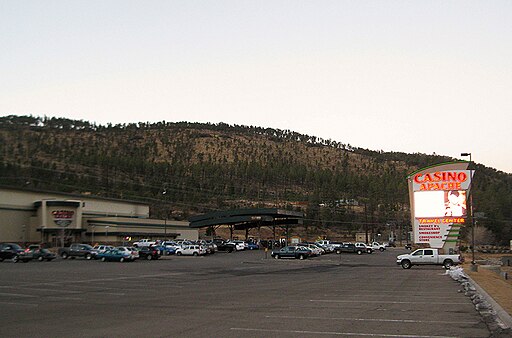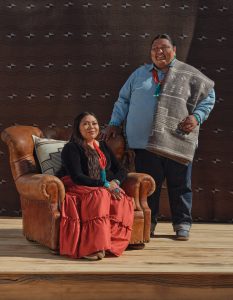In 2024, the number of tribal casinos in the United States reached a record-breaking 537, up from 525 in 2023. This steady climb reflects more than just economic growth; it’s a symbol of sovereignty, cultural preservation, and self-determination for many Native American nations. With tribal gaming revenues generating billions annually, tribes across the country are reimagining their role in the next phase of the gaming industry. Now, with smartphones in nearly every pocket and online gambling becoming more mainstream, some Native American tribes are taking bold steps to move into the digital realm: specifically, online poker. As the game evolves beyond green felt tables and physical chips, tribes are considering how internet poker might serve as both a revenue generator and an extension of cultural and economic power.
Maine Tribes Lead the Charge Toward Online Gaming
In early 2025, tribal leaders in Maine made headlines by backing bill LD 1164, which could revolutionize gambling in the state. If passed, the legislation would allow Native American tribes to offer online versions of poker, blackjack, and other casino staples. According to Passamaquoddy Chief William Nicholas, internet gaming could provide significant financial support for tribal infrastructure, healthcare, and education, while contributing 16% of revenues back to the state.
“Tribally owned and operated internet gaming represents an ideal opportunity to raise both tribal and state governmental revenue for the benefit of all Mainers,” Nicholas told Maine’s Veterans and Legal Affairs Committee. Supporters argue that many people already play these games illegally on their phones, so legalizing and regulating the industry makes both social and fiscal sense.
Still, not everyone is on board. Hollywood Casino in Bangor and Oxford Casino have voiced strong opposition, arguing that the bill would unfairly grant tribes a monopoly over internet gaming. Chris Jackson, a spokesperson for Hollywood Casino, warned that LD 1164 would mark “the greatest single expansion of gaming in our state’s history without the vote of the people of Maine.” The debate highlights a deeper issue: who gets to lead the future of gaming in a world where physical location matters less than ever before?
Bridging Traditional Expertise with Online Potential
The move toward online poker isn’t merely theoretical; it’s being quietly built on a foundation of experience and expertise from within Native American casino networks. Tony Burns, a well-known figure in US poker circles, exemplifies this bridge between traditional casino operations and online innovation. For eight years, Burns served as the head tournament director and Director of Poker Marketing at Seminole Hard Rock, one of the most prestigious tribal-run poker venues in the country. His work transformed Seminole into a marquee stop on the poker circuit, and in the process, he built lasting relationships with industry legends.
In 2024, Burns joined forces with Chris Moneymaker, the 2003 World Series of Poker Main Event champion, to launch the Moneymaker Tour, a new poker series blending live and online experiences. Moneymaker is also a key figure at American online poker site Americas Cardroom, one of the largest and most active gaming platforms in the world. Americas Cardroom offers a wide range of online tournaments, satellite entries, and even crypto-based deposit options, showcasing what’s possible when traditional expertise meets digital scalability.
For tribes considering an entry into online poker, these connections are strategic assets. The infrastructure, legal knowledge, and marketing savvy required to succeed both offline and online are significant, but Native American casino operators already have relationships with individuals who have done it before. And with figures like Burns and Moneymaker setting new standards for hybrid poker experiences, the transition feels more achievable than ever.
Cultural Evolution: From Casino Floors to Digital Tables
For many Native American nations, casinos are about pride, identity, and sovereignty. Events like the Kananesgi Fashion Show, held annually at Harrah’s Cherokee Casino and Resort, reflect how casino venues have become cultural hubs for Indigenous art, fashion, and community celebration. As tribes consider expanding into the online poker world, the question becomes: how can they carry that same cultural resonance into the digital space?
While a virtual poker site can’t replicate the buzz of a live tournament or the aesthetic of a tribal-run resort, it can still be an extension of Indigenous values and entrepreneurship. Online poker platforms can highlight Native-designed graphics, feature culturally sensitive branding, and create charity tournaments that fund tribal initiatives. They can also promote responsible gaming through community-driven support systems rooted in tribal traditions of care and accountability.
Moreover, online poker gives tribes a chance to reach a younger, more tech-savvy demographic. Many Native American adults between the ages of 20 and 40 are already engaging with digital platforms for education, entertainment, and social connection. By meeting them where they are on their phones, tablets, and laptops, tribes have an opportunity to modernize without losing the cultural essence that defines their businesses.
The Future Is a Click Away
As the number of tribal casinos in the US continues to grow, so too does the potential for expansion beyond brick-and-mortar walls. With legislative efforts gaining momentum, strategic partnerships forming, and cultural identity remaining central to the mission, Native American tribes are poised to become key players in the online poker revolution. Whether through legislation like Maine’s LD 1164 or through alliances with industry veterans like Tony Burns and Chris Moneymaker, the move to digital gaming represents more than a business shift. It’s a new chapter in the ongoing story of tribal innovation and resilience.











